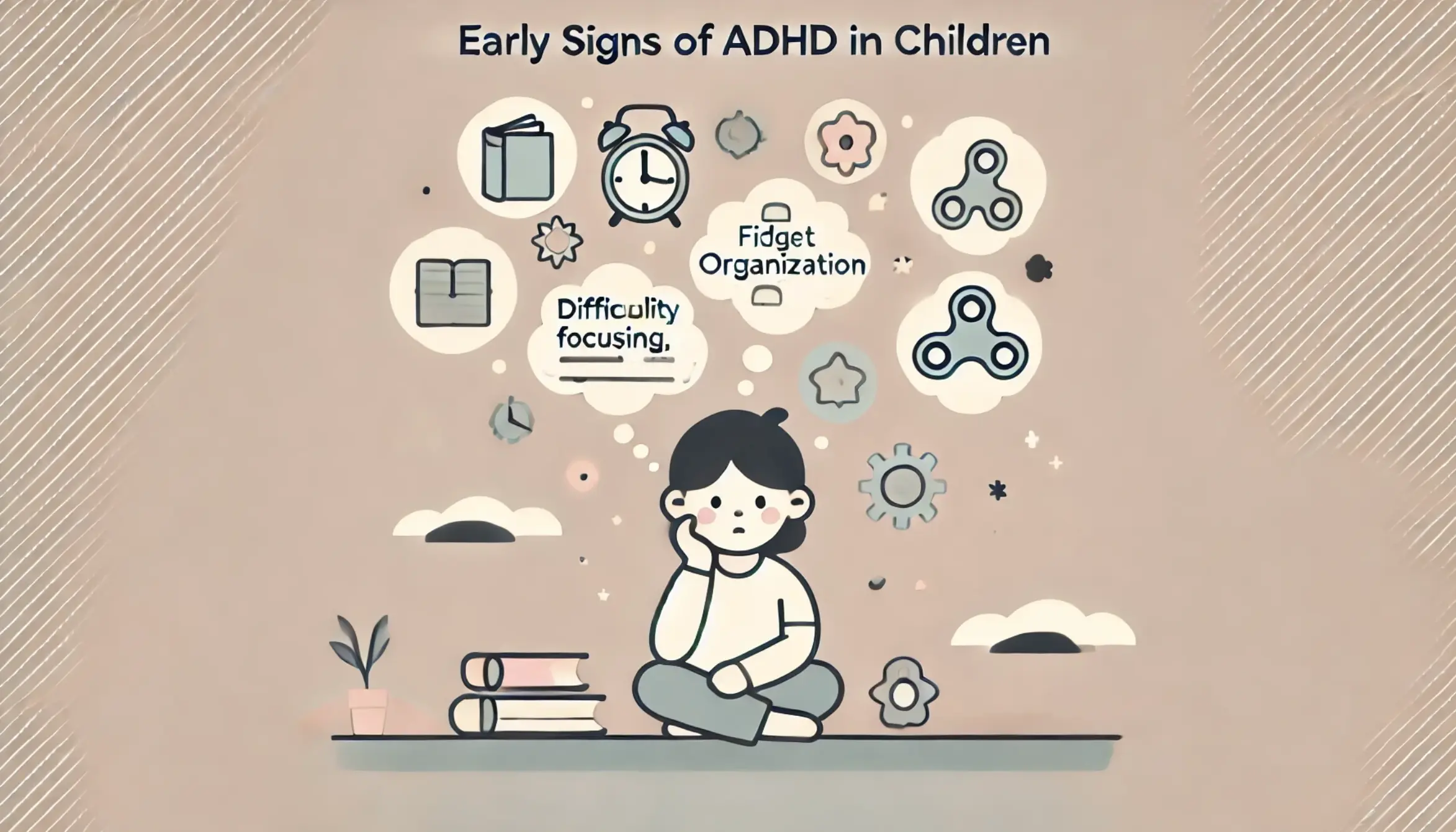Navigating the Social Security Disability (SSD) process is often daunting, especially when your disability is related to mental health. Many people are unsure about what qualifies as a mental health disability, what evidence is required, and how long the process might take.
In this blog, we’ll address the most frequently asked questions about Social Security Disability and mental health, providing you with the essential information to understand the process and increase your chances of approval.
Can You Qualify for Social Security Disability Benefits Based on a Mental Health Condition?
Yes, you can qualify for Social Security Disability benefits based on a mental health condition, but the process can be complex. The Social Security Administration (SSA) recognizes a variety of mental health disorders that can significantly impair your ability to work, thus qualifying you for SSD benefits. Conditions like depression, anxiety, schizophrenia, and PTSD are among those listed in the SSA’s Blue Book of eligible impairments.
To qualify, your condition must prevent you from performing Substantial Gainful Activity (SGA), which means you’re unable to engage in work or earn more than a certain amount each month.
What Mental Health Conditions Qualify for Social Security Disability?
The SSA’s Blue Book outlines several mental health conditions that may qualify you for disability benefits. Some of the most common include:
- Depression
- Bipolar disorder
- Anxiety disorders
- Schizophrenia
- Autism spectrum disorders
- Post-traumatic stress disorder (PTSD)
- Obsessive-compulsive disorder (OCD)
- Intellectual disabilities
However, even if your mental health condition is not explicitly listed, you may still qualify if your condition is severe enough to prevent you from working. The key to approval is demonstrating how your mental health condition limits your ability to function in a work environment.
What Kind of Medical Evidence Do I Need to Qualify for Social Security Disability with a Mental Health Condition?
Providing adequate medical documentation is critical when applying for SSD benefits. Without comprehensive medical evidence, your claim is likely to be denied. Here are the types of documentation you’ll need:
- Mental Health Treatment Records: These should detail your diagnosis, treatment plans, and how your condition affects your ability to function.
- Psychiatric Evaluations and Psychological Assessments: These evaluations assess your functional limitations, cognitive abilities, and overall mental health.
- Statements from Healthcare Providers: Written statements from your mental health professionals, such as psychiatrists, psychologists, or therapists, can be crucial in validating the severity of your condition.
- Medication and Treatment History: Detailed records of any medications you’ve been prescribed, therapy sessions attended, or hospitalizations that have resulted from your condition.
- Functional Reports: Reports that demonstrate how your mental health condition limits your ability to perform daily activities, maintain concentration, and interact with others.
Thorough and consistent medical evidence will significantly increase your chances of receiving SSD benefits.
How Severe Does My Mental Health Condition Need to Be to Qualify for Benefits?

Your mental health condition must be severe enough to limit your ability to perform any meaningful work. The SSA uses the Substantial Gainful Activity (SGA) threshold to determine whether an individual is capable of working. In 2024, the SGA limit is $1,470 per month for non-blind individuals and $2,460 per month for blind individuals.
In addition, your condition must be expected to last for at least 12 months or result in death. Short-term or temporary mental health conditions typically do not qualify for SSD benefits.
What If I Have a Combination of Mental and Physical Health Conditions?
If you have both mental and physical impairments, the SSA will evaluate your combined limitations. Even if each condition on its own is not severe enough to qualify for benefits, the combination of multiple conditions might create sufficient limitations to meet the SSA’s criteria for disability.
For example, someone with depression and chronic pain might have limitations that, together, prevent them from maintaining employment. The SSA looks at the combined effect of all impairments when making their decision.
How Does the SSA Evaluate Mental Health Conditions for Social Security Disability?
When assessing mental health conditions, the SSA evaluates four main areas of functioning:
- Understanding and Remembering Information
- Interacting with Others
- Concentration, Persistence, and Pace
- Adapting or Managing Yourself
The SSA will determine whether your mental health condition causes marked (serious) or extreme limitations in these areas. They also consider episodes of decompensation, which are periods when your symptoms temporarily worsen, preventing you from functioning normally.
The SSA may request a Consultative Examination (CE) if they require additional information about your mental health condition. This is typically conducted by an SSA-appointed healthcare professional.
Can I Work While Applying for Social Security Disability Based on a Mental Health Condition?
Yes, you can work while applying for SSD benefits, but you must earn below the SSA’s Substantial Gainful Activity (SGA) limit. In 2024, that limit is $1,470 per month for most people. If you earn more than this amount, the SSA may conclude that you’re capable of working and deny your claim.
If you work part-time or have limited income, it is still possible to qualify for benefits. However, keep detailed records of your earnings and any work-related challenges caused by your mental health condition, as this information can support your case.
How Long Does the Application Process Take for Mental Health-Related Disability Claims?
The SSD application process can take 3 to 5 months for an initial decision, but delays are common. If your claim is denied and you decide to appeal, the process can take significantly longer—sometimes more than a year.
Here are the typical stages of the SSD application process:
- Initial Application: Typically takes 3 to 5 months.
- Reconsideration: If denied, the reconsideration stage can take an additional 3 to 6 months.
- Hearing: If denied again, a hearing before an administrative law judge can take up to a year or more to schedule.
To avoid unnecessary delays, ensure your application is complete and that all relevant medical documentation is included.
What If My Mental Health Condition Improves? Will I Lose My Benefits?
If your mental health condition improves, the SSA may reduce or terminate your benefits. However, the SSA conducts Continuing Disability Reviews (CDRs) every 3 to 7 years to determine if you still qualify for benefits. If the review finds that your condition has improved significantly and you are now able to work, your benefits may be discontinued.
You are required to notify the SSA if there are significant changes in your health or ability to work.
What Should I Do If My Claim Is Denied?
If your claim is denied, don’t be discouraged—many initial claims are denied. You have the right to appeal the decision. The appeals process includes several steps:
- Reconsideration: A new review of your application by someone who wasn’t involved in the initial decision.
- Hearing by an Administrative Law Judge: If reconsideration is denied, you can request a hearing before a judge.
- Appeals Council: If the judge denies your claim, you can request a review by the SSA’s Appeals Council.
- Federal Court: As a final option, you can file a lawsuit in federal court if your claim is denied at all other levels.
Should I Hire an Attorney for a Mental Health Disability Claim?
Hiring an attorney who specializes in Social Security Disability cases can increase your chances of success. They can help navigate the complex rules, gather the necessary medical evidence, and represent you during appeals. Many disability attorneys work on a contingency basis, meaning they only get paid if you win your case.
Final Thoughts: Navigating the SSD Process for Mental Health Conditions
The process of applying for Social Security Disability benefits for a mental health condition can be challenging, but understanding the requirements and preparing thoroughly can help you increase your chances of approval. By ensuring you have comprehensive medical documentation, working with a healthcare provider like Ability Psychological Services, and understanding your rights during the application process, you can improve your likelihood of securing the benefits you need.
If your claim is denied, don’t give up. The appeals process can be long, but persistence is key to obtaining the financial support you deserve. Learn more about how Ability Psychological Services can help you navigate your Disability Social Security process.
Cited Source:
Social Security Administration. “Disability Evaluation Under Social Security.” SSA.gov. https://www.ssa.gov/disability/professionals/bluebook (October 2024).






